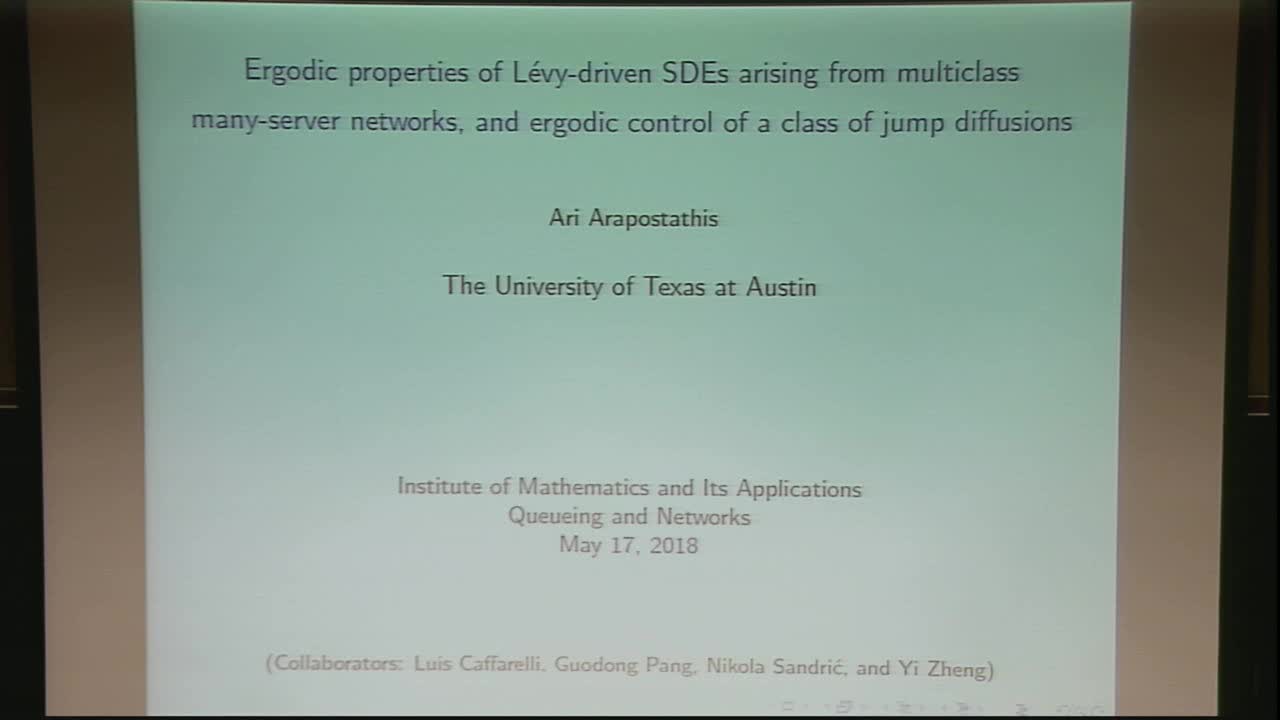Ergodic properties of Lévy-driven SDEs arising from multiclass many-server networks, and ergodic control of a related class of jump diffusions
Presenter
May 17, 2018
Keywords:
- multidimensional piecewise Ornstein-Uhlenbeck processes with jumps, anisotropic Lévy process, polynomial ergodicity, multiclass many-server queues, controlled jump diffusions, ergodic control
Abstract
This talk has two parts. In the first part, we present a comprehensive study of the ergodic properties of a class of multidimensional piecewise Ornstein-Uhlenbeck processes with jumps, which contains the limit of the queueing processes arising in multiclass many-server queues with heavy-tailed arrivals and/or asymptotically negligible service interruptions in the Halfin-Whitt regime as special cases. In these queueing models, the Itô equations have a piecewise linear drift, and are driven by either (1) a Brownian motion and a pure-jump Levy process, or (2) an anisotropic Lévy process with independent one-dimensional symmetric alpha-stable components, or (3) an anisotropic Lévy process as in (2) and a pure-jump Lévy process. We identify conditions on the parameters in the drift and the Lévy measure which result in polynomial and/or exponential ergodicity. We show that these conditions are also necessary. In addition, we show that for the queueing models described above with no abandonment, the rate of convergence is polynomial, and provide a quantitative characterization of this rate. These results are derived from joint work with Nikola Sandric and Guodong Pang.
In the second part of the talk we present an ergodic control problem for a class of jump diffusions in the d-dimensional Euclidean space, which are controlled through the drift with bounded controls. The Lévy measure is finite, but has no particular structure; it can be anisotropic and singular. Moreover, there is no blanket ergodicity assumption for the controlled process. Unstable behavior is `discouraged' by the running cost, which satisfies a mild coercive hypothesis. We first study the problem in its weak formulation as an optimization problem on the space of infinitesimal ergodic occupation measures, and derive the Hamilton-Jacobi-Bellman equation under minimal assumptions on the parameters, including verification of optimality results, using only analytical arguments. We also examine the regularity of invariant measures. Then, we address the jump diffusion model, and obtain a complete characterization of optimality. This part of the talk is joint work with Luis Caffarelli, Guodong Pang, and Yi Zheng.
